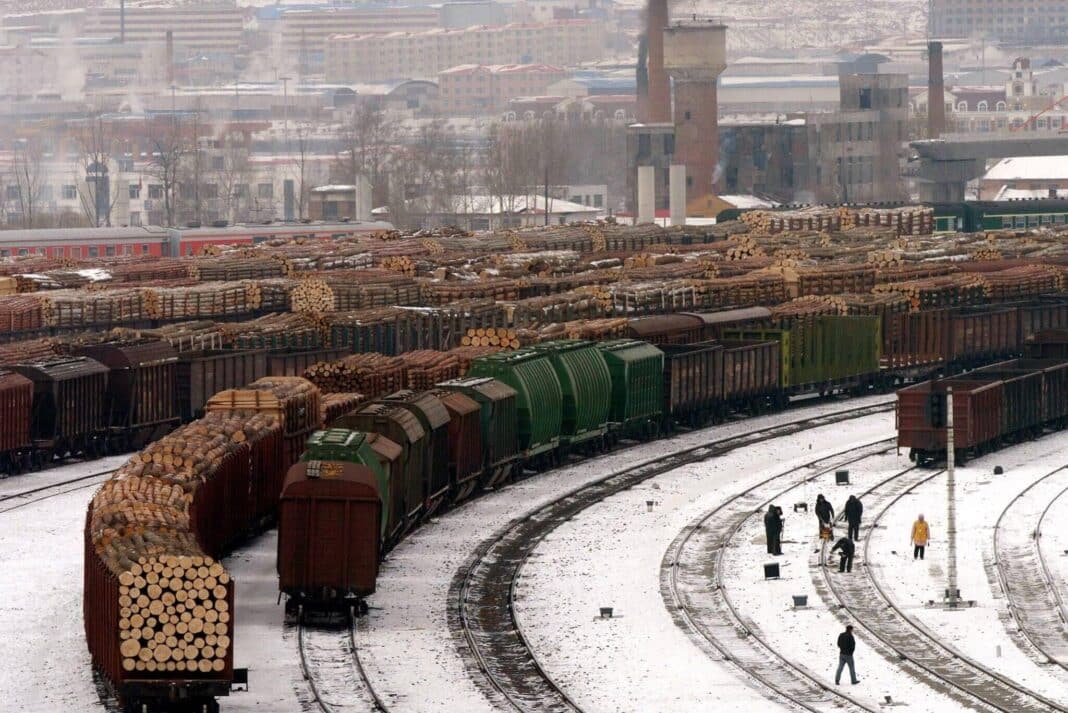Timber trafficking is among a raft of environmental offences that can now be prosecuted in criminal courts after landmark legislation was passed overnight by the European Parliament.
As part of the “Green Deal,” environmental crimes like trafficking, deforestation, forest fires and pollution will be met with fines worth tens of millions of euros or up to five per cent of a company’s global turnover with orders to repair damage caused and the revocation of licences.
“Environmental crime is one of the world’s most profitable organised criminal activities and has a major impact not only on the environment but also on human health,” the European Council said in a statement.
“It is highly lucrative but hard to detect, prosecute and punish.”
Timber trafficking and its links to organised crime have emerged as “fertile ground for corruption.”
In last year alone, more than 120 million tons of timber in Europe had no official certificate of origin, with much of the timber arriving in Europe from Russia via China and a block of nine countries, including Kazakhstan, Belarus, Uzbekistan, Iran, Kyrgyzstan, the United Arab Emirates, Azerbaijan, and Tajikistan.
On Wednesday, Wood Central reported that up to 2% of the US economy is ‘dirty money’, leading Treasury Secretary Janet Yellen to describe the US as “the best place to hide and launder ill-gotten gains.”
According to INTERPOL, the economy connected to environmental crime is enormous, amounting to US $281 billion last year alone – with timber coming from Asia Pacific, Latin America, the African Basin and Russia via “China’s Manufacturing Black Box.”
In recent years, the UN Office on Drugs and Crime has noted “an alarming increase” in timber trafficking connected to drug trafficking and corruption. “The illegal timber trade is a complex issue, often involving multiple actors in multiple countries,” the UN said.
The Green Deal, adopted by the European Parliament in January 2020, sets out a three-decade effort to upend just about every policy area in the EU to make the bloc climate-neutral by 2050.
“In doing so, it has real potential to create a favourable policy environment for the wood industry,” according to Global Wood Markets.
Earlier this year, the EU passed the EU Deforestation Regulation, which bans the sale of coffee, cocoa, cattle, palm oil, soy, and wood connected to deforestation starting from December next year.
“The potential is there to help drive demand for responsibly sourced wood products through the European consumer markets,” Global Wood Markets said.
While educational institutions like PEFC and FSC help address concerns and drive positive consumption behaviour, ignorance around how the certification works can lead to false and fraudulent product claims.
On Wednesday, the Wood Central Publisher spoke to an insider connected to FSC and PEFC, who said: “The key is to look at the formal claim on the product itself and to check that the product information matches up with the FSC and PEFC databases for certified products.”
“If you follow proper due diligence, both schemes effectively address the flood of trafficked timber entering global supply chains.”







